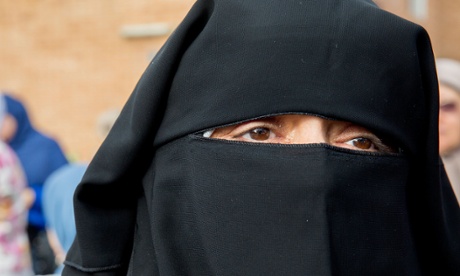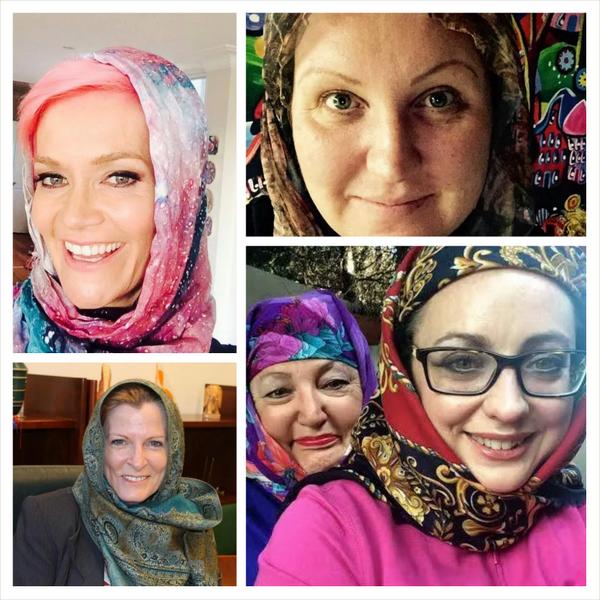
If you haven't seen it already, check out my piece in the Brisbane Times below.
***
It is said that dividing and conquering is an effective way to deal with an opponent.
With that in mind, the very last thing we should be doing as a community in the face of fear is become divided.
As a community, we are so much stronger than that.
They call themselves IS, and are known by a variety of names including ISIS, ISIL, or as Muslim leaders in the US have begun to refer to them, the Anti-Islamic State (AIS).
Irrespective of what its members preach, this group's actions are not Islamic, nor is it by any means an official state. Every time we refer to it as Islamic, we are actually legitimising a group which is essentially criminal in its behaviour. It is strategic and calculated in its actions, but this makes it similar to militant groups worldwide, rather than especially Islamic.
AIS was formally known as Al-Qaeda in Iraq, but it was seen as too violent even for them. The two groups are now competitors for a type of cruel dominance in the region. At its roots, support for the group is politically motivated. The area's history with Sunni and Shiites is complex to say the least, and AIS has capitalised on that tension and historic power imbalance for their own gains.
All of this has occurred half way around the world though. The question many Australians are asking is what has brought this to our doorstep, and how do we deal with it as a community?
The events of the last few days have been played over and over ad nauseam on our screens. They have shocked many. The allegations have been damning and the responses swift. In the face of all that has occurred however, it is imperative that we take a step back, reassess and regroup.
What is important to us as a nation? The concept of a fair go gets bandied about regularly as an Aussie value. So although there have been raids based on information that security forces have intercepted, if we really are about giving each other a fair go then we will treat those arrested as innocent until proven guilty. Although we may be frightened, there has to be a level of trust and support in the justice system and its capacity to deal with threats to our safety. This does not, however, provide permission for authorities to operate without limits. Due process must. be followed. If we are to allows breaches of justice in the name of fighting against what we fear, we are no better than the terrorists.
Our strength and resilience as a society is not measured by how we act in the good times but how we deal with the bad times and come together in the face of adversity. During the 2011 Queensland floods people around the world were shocked to see traffic jams because of people heading into the state, rather than out of it, so they could offer a helping hand. Today should be no different. Faced with a threat - perceived or evidenced - it is imperative that we as a community support each other and stand united against fear.
The tricky line is not letting a stance against fear become a stance against a people because of their race, religion or dress code. The threat of terrorism must not become a chance for racial and religious hatred and ignorance to flourish. What it must not become is a conversation about us and them, because that leads us down a path we thrashed 13 years ago. Violence begets violence. For the cycle to be broken, the conversation must be reframed. Rather than basing it on race, religion or ethnicity, let's base it on intention, values and principles. We have come so far since September 11 and we must heed the lessons of history.
Us and them marginalises communities and makes people feel like they don't belong when Australia is all they have ever known. It pushes people away from the mainstream, particularly young people, when often they are looking to be valued and fit in. Marginalisation, as well as entrenched socio-economic disadvantage and language in the public arena that is isolating, fear mongering and cruel, are some of the many reasons people look for other answers. Groups like AIS are happy to be that answer. We cannot let that happen.
If you are in favour of a society where people live harmony, within a system that is fair and just, then you are for peace and we stand united on that platform.
So what can we all do as individuals? Have open conversations with one another. Learn about each other without prejudice. Smile and say hi to someone who looks different on the street. Stand up to behaviour that is prejudiced. Make a friend who follows a different belief system and ask them about their way of life. make a Muslim friend. Gosh, if all else fails, email me and I'll regale you with terrible puns and stories all about my car woes (never buy an Alfa Romeo if you're not ready for the towing costs and emotional heartache).
There may be disagreement about beliefs, mindsets and ways of living, but this does not preclude us from living harmoniously together. After all, I continue to disagree with anyone who claims the Blues are a better team than the Maroons (however misplaced you may think that faith is…) yet, I do still accept those from down south. We do say that sport is pretty much a religion in this country, don't we?
That is what makes us who we are. The ability to rise above and beyond prejudice, ignorance and hatred and truly be mates, especially when the going gets tough.
As Muslims we are told "since good and evil cannot be equal, repel evil with something that is better" (41:34). Let's all make sure we are better than the evil that we so abhor. Let's make sure it doesn't turn us against our neighbours, but rather brings us together to realise that strength lies not in our differences, but in our unity.




















